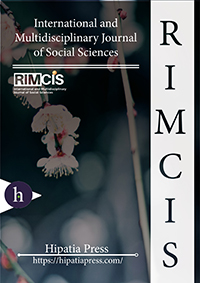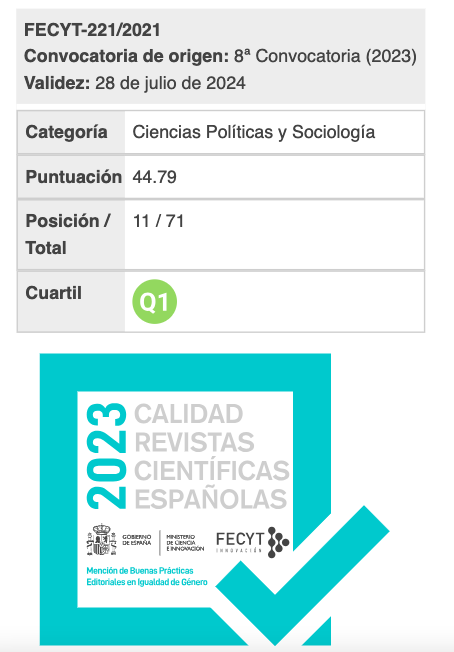Do-It-Together Finance! A participatory action research on community-based finance systems in the Netherlands
Keywords:
Downloads
Abstract
This paper provides insights into the operational features of community-based financing mechanisms like CAF groups. CAF groups are self-financed communities where people save and lend money to each other. The implementation of such self- financed communities in the Netherlands is supported by participatory action research. This paper discusses the first results of this research by exploring whether and how participation of group members can improve their well-being in regard to social networks, financial household management and entrepreneurial positioning based on the capability approach of Sen. For this participatory action research, three groups have been set up, guided, observed, analysed and compared. This paper demonstrates how solidarity economy processes at the grassroots can contribute to the general well-being of vulnerable people in The Netherlands. Sen’s notion of freedom has to be reconsidered when discussed in a context. For this context of overconsumption, inequality and overindebtedness, Sen’s notion of freedom will be reconsidered and adjusted.
Downloads
References
Anand, P., Santos, C. & Smith, R. (2008). The measurement of capabilities. In P. Anan, C. Santos & R. Smith (Eds.) Poverty, Capabilities and Measurement. Oxford: Oxford University Press.
Google Scholar CrossrefAlkire, S. (2007). Choosing dimensions: the capability approach and multidimensional poverty, CPRC Working Paper 88.
Google Scholar CrossrefAlkire, S. (2005). Why the Capability Approach? Journal of Human Development, 6(1), 115-135.
Google Scholar CrossrefArdener, S. & Burman, S. (1995). Money-Go-Rounds: The Importance of Rotating Savings and Credit Associations for Women. Washington, D.C.: Berg.
Google Scholar CrossrefBerg, B. (2004) Qualitative Research Methods for Social Sciences. Boston: Pearson.
Google Scholar CrossrefBijnaar, A. (2002). Kasmoni, Een spaartraditie in Suriname en Nederland. Venlo: Bert Bakker.
Google Scholar CrossrefBouman, F.J.A. (1995). Rotating and Accumulating Savings and Credit Associations: A Development Perspective. World Development, 23(3), 371-384.
Google Scholar CrossrefBurchardt, T., Le Grand, J., & Piachaud, D. (2002). Introduction. In J. Hills, J. Le Grand & D. Piachaud (Eds.), Understanding Social Exclusion (pp. 1-12). Oxford: Oxford University Press.
Google Scholar CrossrefCorbin, J. & Strauss, A. (1990). Grounded Theory Research: Procedures, Canons, and Evaluative Criteria, Qualitative Sociology, 13(1), 3-21.
Google Scholar CrossrefDe Swaan, A. (2006). Mutual funds: there and here, now and there. Informal savings and insurance funds in the nineteeth-century West and the present non-western world. In A. de Swaan & M. van der Linden (Eds.), Mutualist Microfinance. Informal savings funds from the global periphery to the core? (pp. 11-30). Amsterdam: Aksant.
Google Scholar CrossrefFleischer-Proaño , L., Gash, M. & Kuklewicz, A. (2011). Durability of savings group programmes: A decade of experience in Ecuador, Enterprise development & microfinance, 22(2), 147-160.
Google Scholar CrossrefGiddens, A. (1993). New Rules of sociological method. In P. Cassell (Ed.), The Giddens Reader. Stanford: Stanford University Press.
Google Scholar CrossrefHendricks, L. & Chidiac, S. (2011). Village savings and loans: A pathway to financial inclusion for Africa’s poorest households. Enterprise development & microfinance, 22(2), 134-146.
Google Scholar CrossrefHeer, K. & Anderson, G. (2005). The Action Research Dissertation. A Guide for Students and Faculty. London: Sage.
Google Scholar CrossrefIbrahim, S. (2006) From Individual to Collective Capabilities: The Capability Approach as a Conceptual Framework for Self-help, Journal of Human Development, 7(3), 397-416.
Google Scholar CrossrefKappers, S., & Lehmann, J. (2011). Laten wij elkaar helpen! Informele Spaar-, Verzekering- en Leenarrangementen onder 16 etnische minderheden in Nederland. The Hague: Inholland Hogeschool.
Google Scholar CrossrefKluft, M. (2012). Zeg, bent u misschien de nieuwe professional? De omslag van de visie over welzijn naar het handelen van de nieuwe professional, Journal of Social Intervention: Theory and Practice, 21(1), 59-71.
Google Scholar CrossrefKorynski, P. & Rodriguez-Ferrera, J.C. (2010). Debate on Asset Building, EMN Bi-Annual Magazine on Microfinance in Europe, 8, 2-5.
Google Scholar CrossrefLight, I & Deng, Z. (1995). Gender Differences in ROSCA Participation within Korean Business Households in Los Angeles. In S. Ardener, & S. Burman (Eds.), Money-Go-Rounds: The Importance of Rotating Savings and Credit Associations for Women (pp. 217-240).Washington, D.C.: Berg.
Google Scholar CrossrefLight, I. & Gold, S.J. (2000). Ethnic Economies. San Diego: Academic Press.
Google Scholar CrossrefLobbezoo, M. (2010). Microfinance in The Netherlands. In Carboni, B.J., Calderon, M.L., Garrido, S.R., Dayson, K. & Kickul, J. (Eds.), Handbook of Microcredit in Europa. Social Inclusion through microfinance Development (pp. 363-384). Glos: Edward Elgar.
Google Scholar CrossrefNcNiff, J. & Whitehead J. (2006). All you need to know about Action Research. London: Sage.
Google Scholar CrossrefMurie, A. & Musterd, S. (2004). Social Exclusion and Opportunity Structures in European Cities and Neighbourhoods, Urban Studies, 41(8), 1441-1459.
Google Scholar CrossrefNussbaum, M. (2011). Creating Capabilities. The Human Development Approach. Cambridge: Belknap.
Google Scholar CrossrefQredits (2013). Nieuwsoverzicht: 1e MKB-krediet van Qredits verstrekt (Downloaded 01.06.2014: https://qredits.nl/nieuws/nieuws-overzicht/2013/11/18/1e-mkb-krediet-van-qredits-verstrekt.html)
Google Scholar CrossrefRobeyns, I. (2006). The Capability Approach in Practice, The Journal of Political Philosophy. 14(3), 351-376.
Google Scholar CrossrefSCP (2012). Armoedesignalement 2012. Den Haag: SCP/CBS.
Google Scholar CrossrefSen, A. (1983). Poor, Relatively Speaking, Oxford Economic Papers, New Series 35(2), 153-169.
Google Scholar CrossrefSen, A. (1993). Capability and Well-Being, In M. Nussbaum, & A. Sen (Eds.), The Quality of Life. Oxford: Clarendon.
Google Scholar CrossrefSen, A. (1999). Development of Freedom. Oxford: Oxford University Press.
Google Scholar CrossrefSen, A. (2004). Capabilities, lists, and public reason: Continuing the conversation, 0, 10(3): 77-80.
Google Scholar CrossrefSmets, P. (1996). Community-based finance systems and their potential for urban self help in a new South Africa, Development Southern Africa, 13(2), 173-187.
Google Scholar CrossrefSmets, P. (2000). ROSCAs as a source of housing finance for the urban poor: an analysis of self-help practices from Hyderabad, India. Community Development Journal, 35(1), 16-30.
Google Scholar CrossrefSmets, P., & Broekman, A. (1996). Turkse vrouwen en hun güns in Amsterdam. In M. van der Linden & J. Sluijs (Eds.), Onderlinge Hulpfondsen, Historische en etnografische essays. Amsterdam: Stichting beheer IISG.
Google Scholar CrossrefTriodos Facet (2006). Microkredieten in Nederland. Kansen en uitdagingen voor banken en starters. Bunnik: Triodos Facet.
Google Scholar CrossrefYerkes, M. & Van der Veen, R. (2011). Crisis and Welfare State Change in the Netherlands, Social Policy & Administration, 45(4): 430-444.
Google Scholar CrossrefDownloads
Published
Almetric
Dimensions
How to Cite
Issue
Section
License
All articles are published under Creative Commons copyright (CC BY). Authors hold the copyright and retain publishing rights without restrictions, but authors allow anyone to download, reuse, reprint, modify, distribute, and/or copy articles as the original source is cited.















